

We may earn revenue from the products available on this page and participate in affiliate programs. Learn More ›
Backyard fire pits are having a heyday. For starters, just about every outdoor living trends report that crosses my desk includes the sought-after feature in some form. In addition, our tested guide to the best fire pits continues to be a favorite among homeowners everywhere—and it’s easy to understand why. The thought of cozy, crackling flames on chilly fall evenings is alluring. Some fire pit proponents even claim that the smoke deters mosquitoes. That’s all I needed to hear before purchasing a portable, wood-burning fire pit for my backyard. As it turns out, there are several cons I wish I’d considered as well.
1. Fire pits are not healthy.
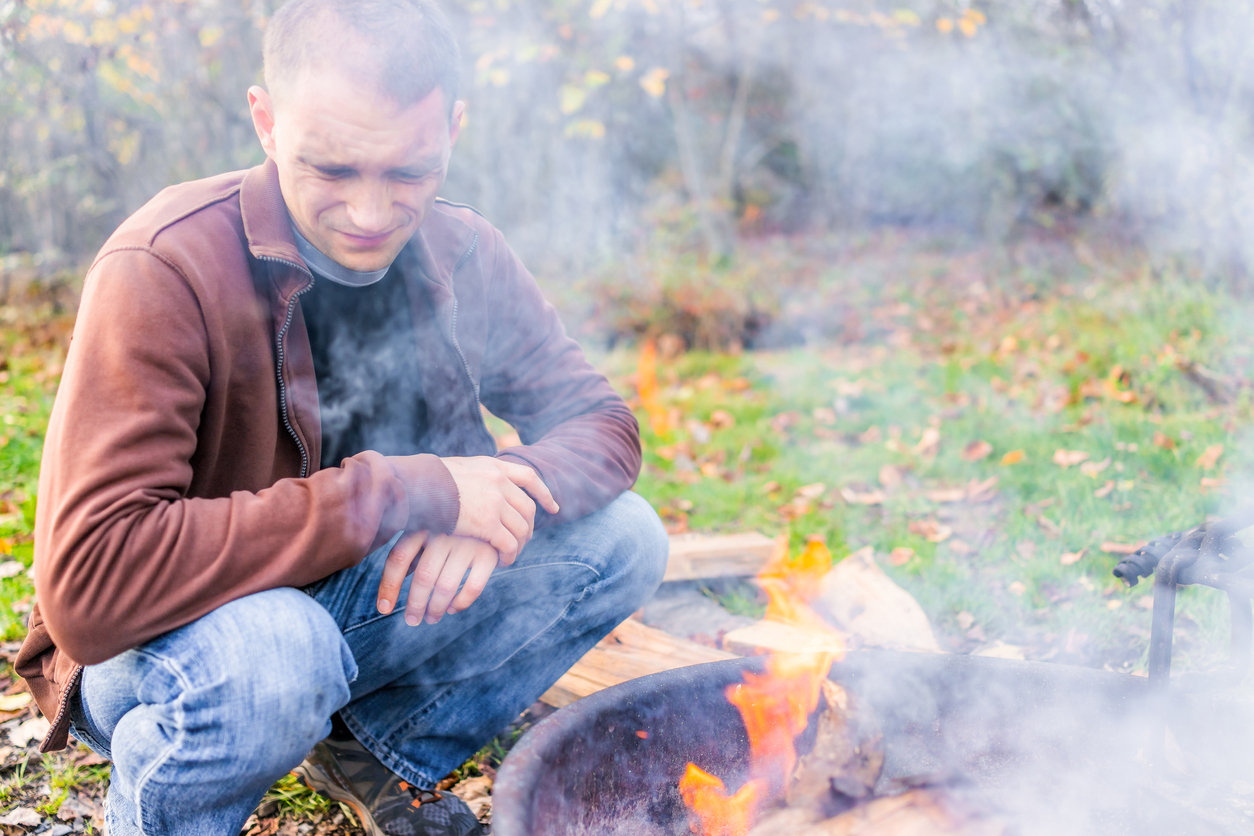
Fresh air is a necessity for my physical and mental well-being, and I assumed I’d get more of it if I had a relaxing fire feature to draw me outdoors. But the first time I used it, that fantasy went up in smoke—literally. Noxious fumes instantly hit me in the face. Sure, I was able to move my chair to get out of the direct path of the smoke…until the wind shifted and I had to move again. Talk about a buzzkill.
Even when burning properly seasoned wood, fire pits can produce unhealthy amounts of air pollution. According to the EPA, particulate matter in wood smoke can cause adverse effects on human cardiovascular and respiratory systems, especially for people with existing heart or lung disease.
A recent survey conducted by the Minnesota Pollution Control Agency revealed that more than 50 percent of fine particle emissions in my state come from residential wood combustion. The survey also cited recreational fire pits as the most common type of wood-burning equipment used by households like mine. After a summer filled with air quality warnings in the Upper Midwest, the least I can do to help alleviate the growing pollution problem is to stop burning wood in my backyard.
Note: Gas fire pits, like this highly rated option recommended by Bob Vila’s team of lawn and garden experts, burn cleaner fuel and emit less particulate matter into the atmosphere than their wood-burning counterparts.
RELATED: Fire Pit Safety: 13 Rules You Should Always Follow
2. They don’t deter mosquitoes.
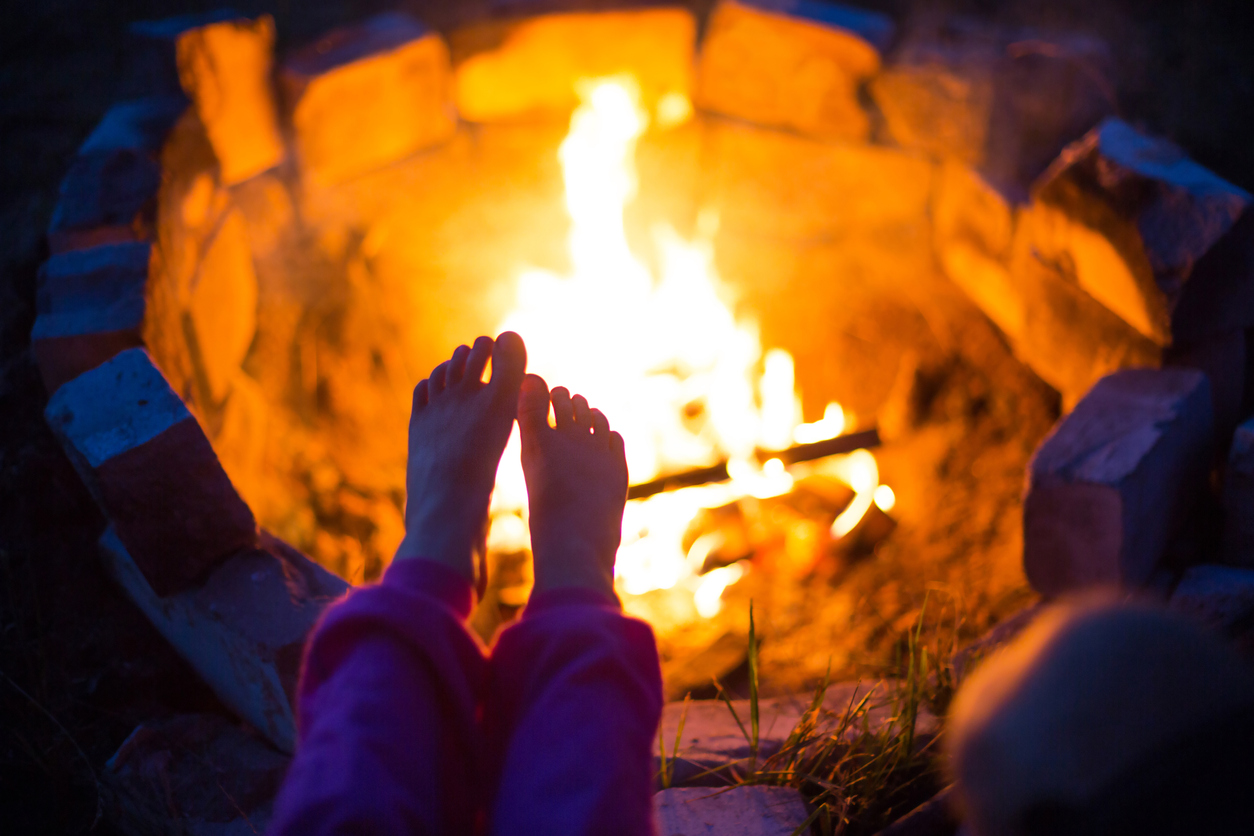
The one potential benefit of fire pit smoke—that it keeps mosquitoes away—turned out to be a myth in my case. Maybe it’s because of the exceptionally large population of the biting insects in my area, or perhaps my blood type has something to do with it. Whatever the reason, I still got plenty of bites sitting around my fire pit, just like any other time I’m outside when the sun sets.
Some DIYers on the internet recommend throwing bundles of pungent herbs like sage and rosemary into a fire pit to boost its mosquito-repelling abilities. But as noted previously, adding more smoke can do more harm than good.
RELATED: How to Get Rid of Mosquitoes Naturally: Our 15 Best Tips
3. Backyard fire pits stink.
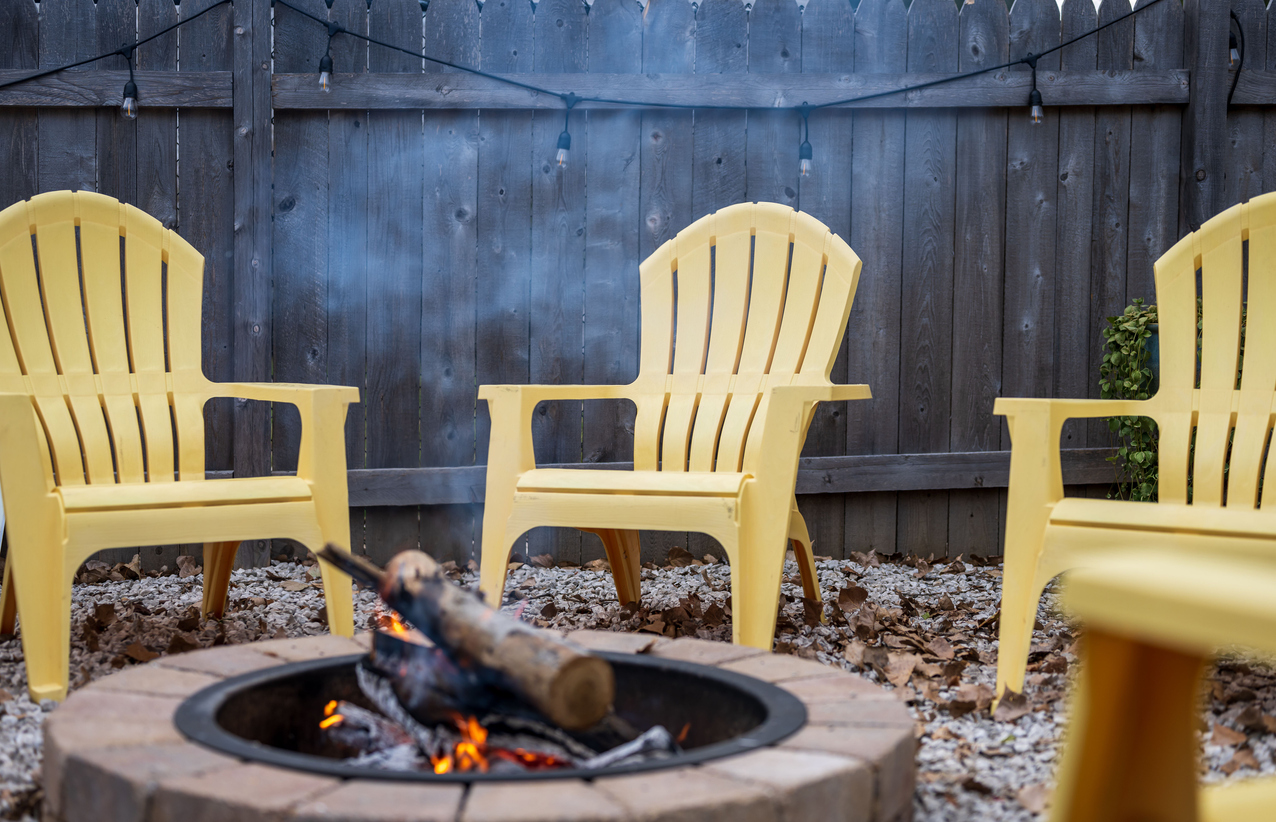
Some people love the smell of a bonfire. I don’t. Come to think of it, my neighbors probably don’t either. The odor is tolerable outside, but when I come back in the house after sitting around the fire pit, my clothes, skin, and hair reek. Worse, I have to close all of my windows even though the weather is nice enough to be outside or the smoke smell will seep into my furniture, rugs, curtains, and more. Chances are my neighbors have probably had to close their windows a time or two as well simply because my backyard fire pit spoiled the fresh air outside.
RELATED: We Spent Months Burning Incense (and Some Dinners) to Find the Best Air Purifiers for Smoke
4. Burning stuff isn’t neighborly.
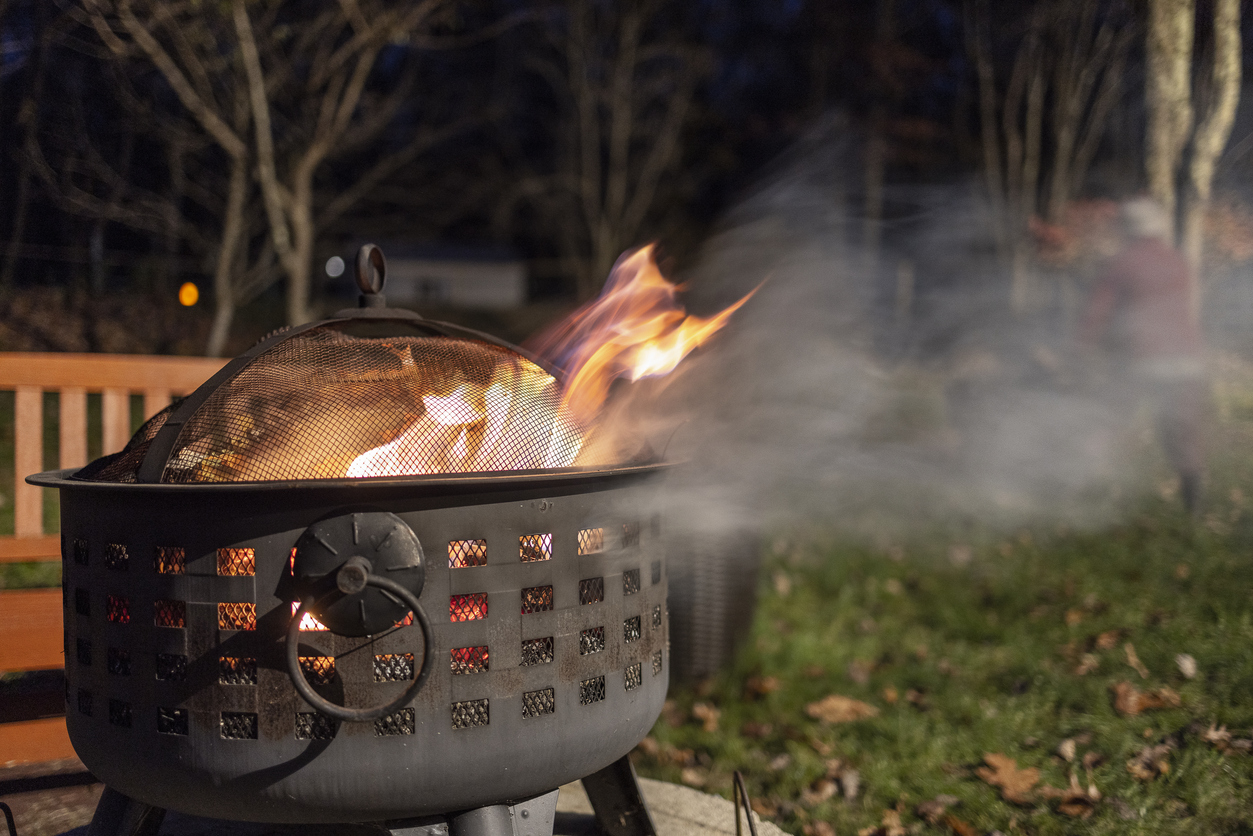
Like most homeowners, I want to keep a mutually respectful relationship with my neighbors. It wasn’t until I purchased and used my wood-burning fire pit that I realized just how annoying and downright dangerous it could be to those that live around me.
The air pollution alone can harm neighbors with health conditions like asthma; and it goes without saying that kids can get burned if not constantly monitored around the flames and hot coals. Nearby property is always at risk when using a fire pit, but especially during times of drought. Even firewood supplies can cause problems. For example, the invasive emerald ash borer has destroyed many mature trees in my neighborhood. According to the University of Minnesota Extension, transporting infested firewood has led to its accelerated spread.
RELATED: 12 Things You Don’t Realize Are Annoying Your Neighbors
5. They damage lawns.
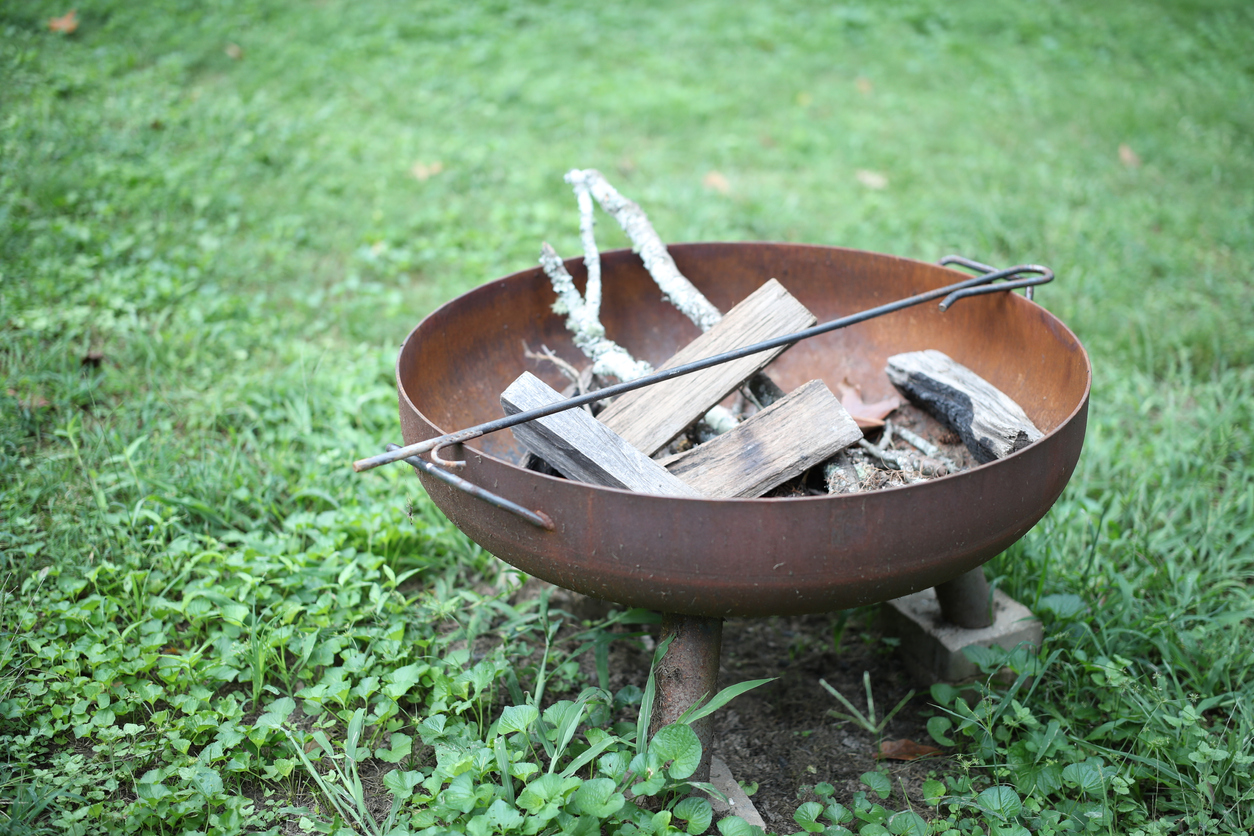
Considering the more serious consequences of using fire pits mentioned above, the fact that my portable one killed some grass in the yard is minute. However, the resulting eyesore was not something I had anticipated. Placing concrete pavers under the fire pit did not protect the turf as I’d hoped, but rather it extended the area in need of repair. Who doesn’t love a little more fall yard work? Me.
Suffice it to say, I’ve stopped using my wood-burning fire pit. For me, the negatives outweigh the positives, and retiring it for good is just one small thing I can do to help protect my community and the broader planet. Next up for the hunk of metal now taking up storage space in my garage is a trip to the recycling center.
